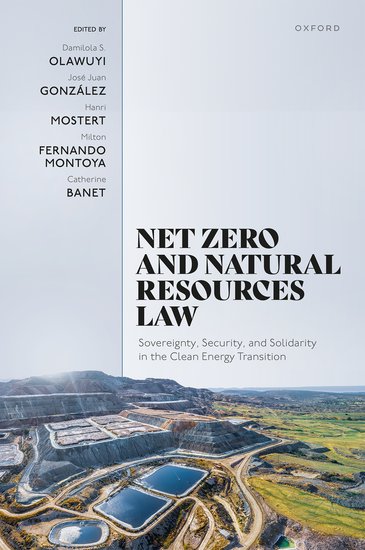Sovereignty, Security, and Solidarity in the Clean Energy Transition
Damilola S. Olawuyi
About The Book
Net Zero and Natural Resources Law: Sovereignty, Security, and Solidarity in the Clean Energy Transition, edited by Damilola S. Olawuyi, José Juan González, Hanri Mostert, Milton Fernando Montoya, and Catherine Banet, provides a comprehensive analysis of the legal, regulatory, and policy challenges associated with achieving net-zero emissions globally. The book examines how the pursuit of clean energy and critical minerals can lead to complex environmental, social, and governance risks—such as resource nationalism, human rights violations, and energy insecurity—especially in conflict-prone and high-risk regions. Structured around three central themes—sovereignty, security, and solidarity—it explores how legal frameworks across Africa, Asia, Europe, Australasia, and the Americas are adapting to these challenges. Through 22 chapters, the volume addresses topics including natural resource contracts, critical minerals strategies, gender justice, human rights, environmental impact assessments, and the role of regional trade agreements. It emphasizes the need for integrated, inclusive, and climate-aligned legal instruments to ensure a just and equitable energy transition that reflects local realities while aligning with global sustainability goals.
About The Chapter
In their chapter “Net Zero, Human Rights, and ESG Risk Management” from Net Zero and Natural Resources Law, Damilola S. Olawuyi and Elena I. Athwal examine the critical intersection of environmental, social, and governance (ESG) considerations within the context of the global shift toward net-zero emissions. They emphasize the necessity of integrating human rights principles into ESG frameworks to ensure that the clean energy transition does not perpetuate or exacerbate existing inequalities. The authors advocate for coherent ESG implementation and enforcement strategies that prioritize good governance and inclusive decision-making. Their analysis underscores the importance of aligning ESG risk management with human rights obligations to foster a just and equitable energy transition.
You can access the full chapter
